Nereus in the News – Friday, September 2
Nereus Program research covered in National Geographic, Reuters, CBC Radio Canada, Metro, LocalXpress, and Sport Fishing.
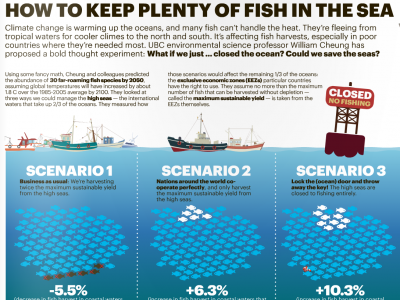
Nereus Program research covered in National Geographic, Reuters, CBC Radio Canada, Metro, LocalXpress, and Sport Fishing.
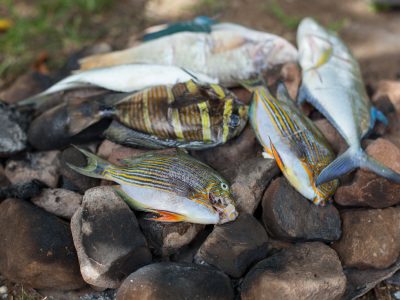
Closing the high seas to fishing could increase fish catches in coastal waters by 10%, compensating for expected losses due to climate change, finds a new Nippon Foundation-Nereus Program study published in Fish and Fisheries.
The high seas are those areas of the ocean outside the jurisdiction of countries; the high seas cover nearly two thirds of the ocean’s surface. These results could be seen by 2050 relative to 2000 and cooperatively managing the high seas fisheries would have similar effects.
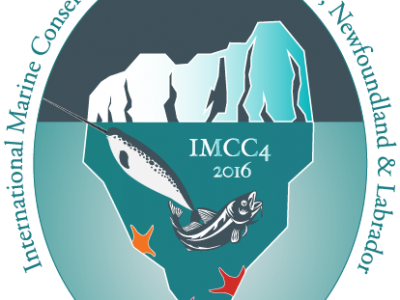
The International Marine Conservation Congress (IMCC) took place from July 30th to August 3rd in St. John’s, Newfoundland, Canada. The congress brings together marine conservation professionals and students in order to “develop new and powerful tools to further marine conservation science and policy”. Under the theme of “Making Marine Science Matter”, this year’s conference dealt with strategies to influence policy-makers and stakeholders, and was divided among several topics of interest, including marine food security, ocean science technology, and marine policy.
The Nereus Program will have a presence at the International Marine Conservation Congress taking place from July 30th to August 3rd in St. John’s, Newfoundland, Canada. Following the theme of…
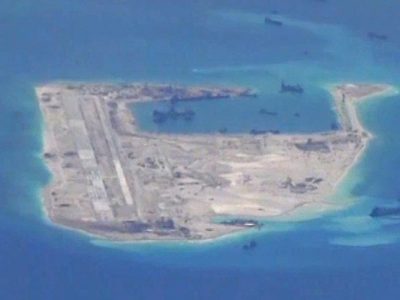
One of the most significant – and increasingly bitter – international disputes of recent years has engaged legal claims over maritime territory in the South China Sea. Under the United Nations Convention on the Law of the Sea of 1982 (UNCLOS), to which the main protagonists are parties, states are entitled to claim an Exclusive Economic Zone (EEZ) conferring sovereign rights and jurisdiction up to 200 nautical miles of maritime space from their coasts. In the South China Sea, however, this position has been complicated by historical claims over a series of small islands and reefs within the southern section of this area.
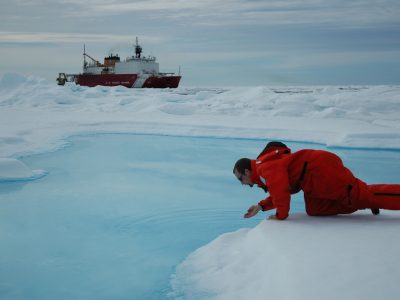
“Towards an integrated database on Canadian ocean resources: benefits, current states, and research gaps” was recently published in the Canadian Journal of Fisheries and Aquatic Sciences, authored by Nereus Fellow Andrés Cisneros-Montemayor (UBC), Director of Science William Cheung, and OceanCanada Director Rashid Sumaila (Nereus Honorary Research Associate).
Yoshitaka Ota, Nereus Program Director (Policy), and Rashid Sumaila, OceanCanada Research Director and Nereus Program Honorary Research Associate, acted as panelists during a talk by Marjo Vierros, Adjunct Senior Fellow at the United Nations University Institute for the Advanced Study of Sustainability and Liu Institute Visiting Fellow, given at the Liu Institute for Global Issues on April 27th.
Dr. Marjo Vierros, Adjunct Senior Fellow at the United Nations University Institute for the Advanced Study of Sustainability and Liu Institute Visiting Fellow, will be giving a talk at the…
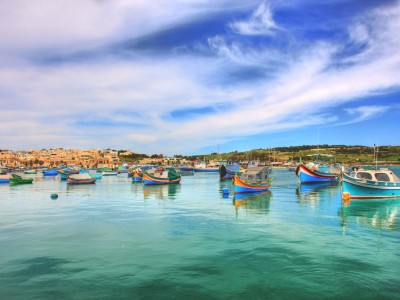
The Fifth Assessment Report of the Intergovernmental Panel on Climate Change (IPCC), released in 2013 and 2014, highlighted the vulnerability, impacts and adaptation of marine systems to climate change and ocean acidification. As this field of research is constantly building and evolving, “Observed and projected impacts of climate change on marine fisheries, aquaculture, coastal tourism, and human health: an update” was recently published as an update of findings since the release of the report.
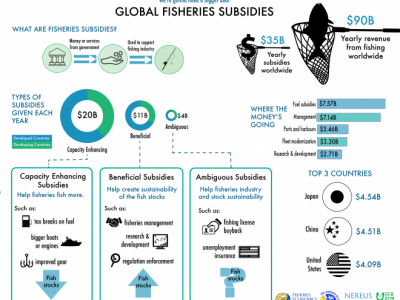
OceanCanada Research Director Rashid Sumaila and his collaborators from the UBC Global Fisheries Cluster (Sea Around Us and the Nereus Program) have published an updated estimate of global fisheries subsidies in the international journal Marine Policy. The researchers found that the global fishing industry is being supported by $35 billion yearly in government subsidies, the majority of these, upwards of $20 billion annually, promote increased capacity that can lead to harmful impacts such as overfishing.